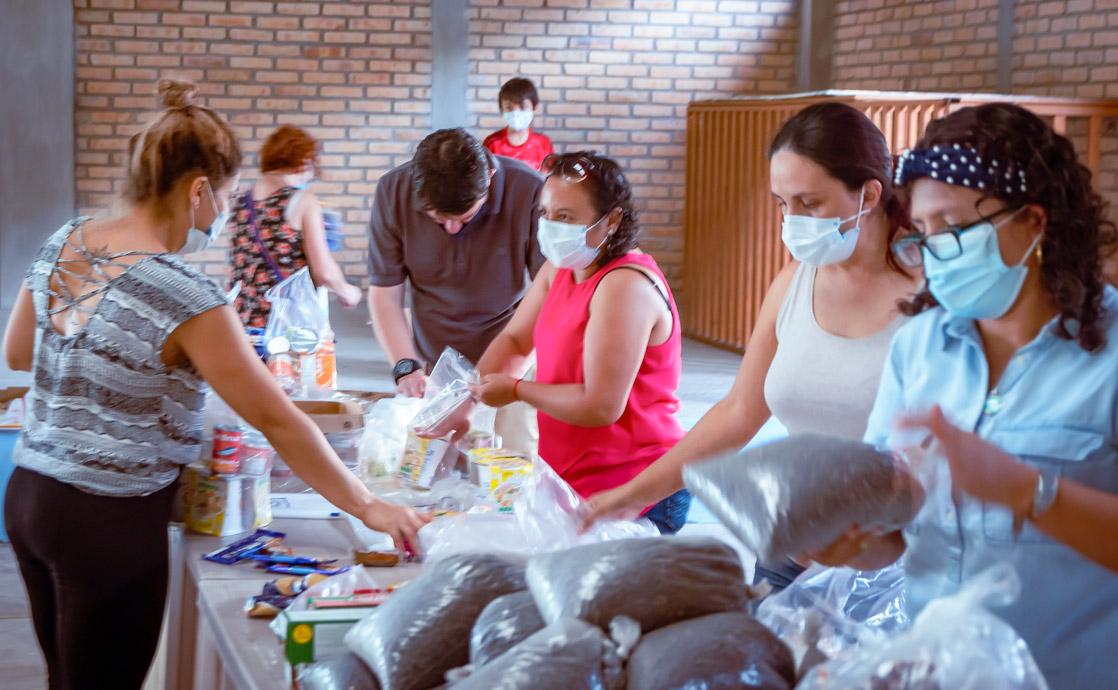The Bahá’í teachings fundamentally emphasize the interconnectedness of all humanity and the importance of resilience as a key virtue in overcoming life’s challenges. The unfolding narrative of resilience in Honduras, particularly in the face of recurrent disasters, embodies the profound essence of these teachings. This exploration elucidates how the Bahá’í principles can be applied to foster resilience within communities susceptible to natural calamities, enhancing not only their capacity to endure but also to thrive post-disaster.
Disasters, both natural and anthropogenic, have a propensity to dismantle communities, leaving in their wake a plethora of emotional and material destruction. However, the Bahá’í perspective encourages a transformational approach to adversity. Resilience—defined as the capacity to recover quickly from difficulties—can be perceived through a Bahá’í lens as a manifestation of spiritual strength and collective learning. In Honduras, a country frequently assailed by hurricanes, floods, and economic instability, the infusion of Bahá’í principles can pivot the community’s response to disaster from a reactive stance to a proactive, enduring framework.
The first step in cultivating resilience is the promotion of unity and cooperation among community members. The Bahá’í teachings assert that unity is not merely a moral aspiration but a practical necessity for effective action. In Honduras, efforts to bolster community solidarity post-disasters have shown tangible results. Local Bahá’í communities often spearhead initiatives that encourage collaborative efforts in disaster preparedness and response. These initiatives transcend the individualistic pursuit of recovery, fostering a communal spirit where collective action becomes the embodiment of resilience.
Moreover, the Bahá’í concept of the oneness of humanity catalyzes empathy and compassion, virtues essential for communal resilience. Empathy fosters deeper connections among individuals, creating a social fabric that is more resistant to disruption. In the wake of disasters, Honduras has witnessed neighbors supporting each other, sharing resources, and providing emotional sustenance. Such interpersonal bonds, reinforced by Bahá’í teachings, significantly mitigate the psychological impact of disasters, contributing to a community’s overall resilience.
Another pivotal aspect of resilience is the cultivation of an adaptive mindset. Bahá’ís view challenges as opportunities for growth and development. In Honduras, this outlook can be integrated into educational initiatives aimed at children and youth. By instilling the values of adaptability and resourcefulness, young people can emerge with a toolkit that enables them to navigate adversities with grace and poise. Educational programs that incorporate Bahá’í principles not only enhance individual capacities but also cultivate leadership qualities essential for future community resilience.
Furthermore, the Bahá’í teachings advocate for a holistic approach to development, underscoring the necessity of addressing both the material and spiritual needs of communities. In Honduras, initiatives that integrate skills training, economic empowerment, and spiritual education have begun to bear fruit. Such multifaceted programs equip individuals with the means to rebuild their lives post-disaster, ensuring that recovery is not merely a return to the status quo but a leap towards a more prosperous future.
The notion of service to humanity, deeply embedded within the Bahá’í framework, is another critical factor in enhancing resilience. In a society where social service is prioritized, individuals are motivated to contribute to the wellbeing of their communities. This is particularly salient in Honduras, where local Bahá’í groups frequently engage in service projects, whether through providing aid during emergencies or developing long-term social programs aimed at improving living conditions. By orienting their lives around the service of others, community members cultivate a resilient collective identity, fortified against the disbanding forces of disaster.
Moreover, the Bahá’í commitment to justice empowers communities to advocate for equitable access to resources and support systems, which is paramount in disaster preparedness. Hardship often exacerbates existing inequalities; therefore, a conscientious approach that champions fairness and inclusiveness can significantly bolster resilience. In Honduras, efforts led by Bahá’í communities to ensure that all voices are heard in decision-making processes have begun to reshape how resources are allocated, favoring vulnerable populations often left in the lurch during crises.
Resilience is fundamentally a narrative of hope, a collective promise that despite the looming threats of disasters, communities can, and indeed will, adapt and evolve. The Bahá’í teachings imbue this narrative with profound spiritual dimensions, asserting that every challenge presents a divine opportunity for enrichment and growth. In Honduras, amidst the specter of environmental and economic vulnerabilities, the Bahá’í community exemplifies this resilience. Their commitment to unity, service, justice, and education not only transforms their own lives but also sets a compelling precedent for others. Through collaborative efforts, they inspire a paradigm shift—a collective response to adversity that moves beyond mere survival towards a flourishing future.
In conclusion, the Bahá’í teachings regarding resilience provide a broad and profound roadmap. The story of Honduras serves as a testament to what is possible when communities collectively embrace these teachings. As they navigate the journey through disasters, the application of Bahá’í principles paves the way for enduring change, enabling individuals and communities to emerge stronger, not just in the aftermath of disasters, but for generations to come. The tale of resilience in Honduras is a clarion call to all—underscoring the imperative of unity, compassion, and a steadfast commitment to a better future.
